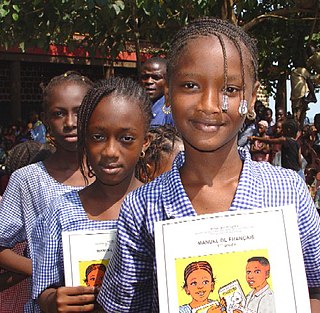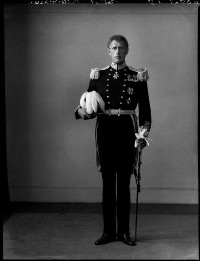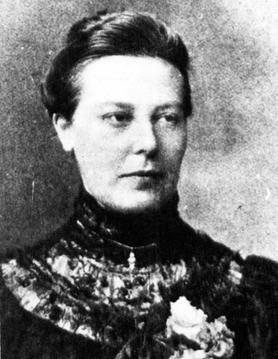Related Research Articles

Italian East Africa was an Italian colony in the Horn of Africa. It was formed in 1936 after the Second Italo-Ethiopian War through the merger of Italian Somalia, Italian Eritrea, and the newly occupied Ethiopian Empire.
Elspeth Joscelin Huxley CBE was an English writer, journalist, broadcaster, magistrate, environmentalist, farmer, and government adviser. She wrote over 40 books, including her best-known lyrical books, The Flame Trees of Thika and The Mottled Lizard, based on her youth in a coffee farm in British Kenya. Her husband, Gervas Huxley, was a grandson of Thomas Henry Huxley and a cousin of Aldous Huxley.

The decolonisation of Africa is a process that largely took place from the mid-1950s to 1975 during the Cold War, with radical government changes on the continent as colonial governments made the transition to independent states. The process was often marred with violence, political turmoil, widespread unrest, and organised revolts in both northern and sub-Saharan countries including the Mau Mau rebellion in British Kenya, the Algerian War in French Algeria, the Congo Crisis in the Belgian Congo, the Angolan War of Independence in Portuguese Angola, the Zanzibar Revolution in the Sultanate of Zanzibar, and the Nigerian Civil War in the secessionist state of Biafra.
The history of education in Africa can be roughly divided into pre- and post- colonial periods. Since the introduction of formal education to Africa by European colonists, African education, particularly in West and Central Africa, is characterised by both traditional African teachings and European-style schooling systems. The state of education reflects not only the effects of colonialism, but instability resulting from and exacerbated by armed conflicts in many regions of Africa as well as fallout from humanitarian crises such as famine, lack of drinking water, and outbreaks of diseases such as malaria and Ebola, among others. Although the quality of education and the quantity of well-equipped schools and teachers has steadily increased since the onset of the colonial period, there are still evident numerous inequalities in the existing educational systems based on region, economic status, and gender.
Ian Dalrymple was a British screenwriter, film director, film editor and film producer.

Female education is a catch-all term for a complex set of issues and debates surrounding education for girls and women. It is frequently called girls' education or women's education. It includes areas of gender equality and access to education. The education of women and girls is important for the alleviation of poverty. Broader related topics include single-sex education and religious education for women, in which education is divided along gender lines.
John Sydenham Furnivall was a British-born colonial public servant and writer in Burma. He is credited with coining the concept of the plural society and had a noted career as an influential historian of Southeast Asia, particularly of the Dutch East Indies and British Burma. He published several books over a long career, including the influential Colonial Policy and Practice and wrote for more than 20 major journals, although his work is now criticized as being Eurocentric and biased in favor of continued colonialism.
William Miller Macmillan is regarded as a founder of the liberal school of South African historiography and as a forerunner of the radical school of historiography that emerged in the 1970s. He was also a critic of colonial rule and an early advocate of self-government for colonial territories in Africa and of what became known as development aid.

Lesley Naa Norle Lokko is a Ghanaian-Scottish architect, academic, and novelist. From 2019 to 2020 she was a professor and served as Dean of Bernard and Anne Spitzer School of Architecture, in addition to holding teaching positions and different careers in Johannesburg, London, Accra and Edinburgh.

Sir Harold Baxter Kittermaster, KCMG, KBE was governor of British Somaliland, British Honduras, and then of the Nyasaland protectorate in the period before the Second World War.

The campaign against female genital mutilation in colonial Kenya (1929–1932), also known as the female circumcision controversy, was a period within Kenyan historiography known for efforts by British missionaries, particularly from the Church of Scotland, to stop the practice of female genital mutilation in colonial Kenya. The campaign was met with resistance by the Kikuyu, the country's largest tribe. According to American historian Lynn M. Thomas, female genital mutilation became a focal point of the movement campaigning for independence from British rule, and a test of loyalty, either to the Christian churches or to the Kikuyu Central Association, the largest association of the Kikuyu people.
The Kennedy Airlift was started in 1959 by a 28-year-old Kenyan, Tom Mboya, who sought support for promising Kenyan students to get college and university educations in the United States and Canada. It brought hundreds of students from East Africa from 1959 to 1963 and was supported by many North American educational institutions, foundations, and individuals such as the African American Students Foundation (AASF) and African Americans including Harry Belafonte, Jackie Robinson, Sidney Poitier, and Martin Luther King Jr. It got its popular nickname in September 1960 when Senator John F. Kennedy in a close presidential campaign arranged a $100,000 donation from the Joseph P. Kennedy Jr Foundation to cover airfare for the autumn 1960 group of East African students just as the program was running out of funds.

The history of the evolution of the traits of women in Kenya can be divided into Women within Swahili culture, Women in British Kenya, and Kenyan Women post-Independence. The condition and status of the female population in Kenya has faced many changes over the past century.

Marion Scott Stevenson was a Scottish missionary with the Church of Scotland Mission in British East Africa (Kenya) from 1907 until 1929.

Clifford Henry Fitzherbert Plowman CMG OBE BA JP was a British diplomat and Colonial Service administrator. He was the only child of the Rev'd Herbert William Thomas Plowman MA and Louisa Plowman. He was educated at King's Ely and Trinity College, Cambridge.
Margaret Agnes Keay, was a South African-born British phytopathologist. She played a role in the development of educational institutions in Africa through activism and financial programmes focusing on education of girls and women in Africa.

Sophie Lihau-Kanza or Zala Lusibu N'Kanza was a Congolese politician and sociologist. She was the first woman of her country to receive a secondary education, the first to graduate from a university, and the first to hold a government office in the Democratic Republic of the Congo, serving as Minister of Social Affairs from 31 October 1966 to 6 December 1970. In her later life she held positions within the United Nations.

Agnes Winifred Hoernlé née Tucker was a South African anthropologist, widely recognized as the "mother of social anthropology in South Africa". Beyond her scientific work, she is remembered for her social activism and staunch disapproval of Apartheid based on white supremacy. Born in 1885 in the Cape Colony, as an infant she moved with her family to Johannesburg, where she completed her secondary education. After earning an undergraduate degree in 1906 from South African College, she studied abroad at Newnham College, Cambridge, Leipzig University, the University of Bonn, and the Sorbonne. Returning to South Africa in 1912, she undertook anthropological research among the Khoekhoe people, until she married in 1914.
James Broom Millar (1909-1986) was a British Foreign Service personnel, a World War II veteran, and Media executive. He was the Director General of the Gold Coast Broadcasting Service from 1954 to 1957 and the Director General of the Ghana Broadcasting Corporation from 1957 to 1960. He was consequently the first Director General of the Ghana Broadcasting Corporation.

Rebecca Reuben Nowgaokar was a Jewish-Indian writer and educator. She was the director of the School Committee Bene Israel in Mumbai from 1922 to 1950.
References
- 1 2 P. Causation, Schooling for all women in Kenya, ‘’Black Sash’’, Vol. II, No. 5 (April 1958), pp.12-3.
- ↑ Janisch, Miriam /Papers
- ↑ East Africa Women's League: the 1940s
- ↑ Clive Whitehead (2003). Colonial Educators: The British Indian and Colonial Education Service 1858-1983. I.B.Tauris. p. 100. ISBN 978-1-86064-864-9.
- ↑ 'The Birthday Honours', The Times , 13 June 1957.
- ↑ Kenya National Assembly Official Record (Hansard). Vol. 85. 1960. p. 1076.